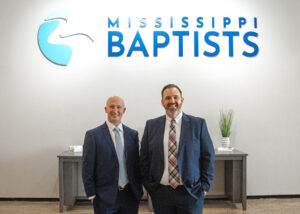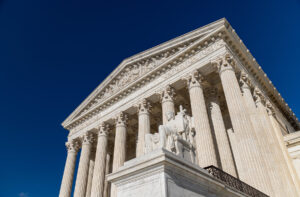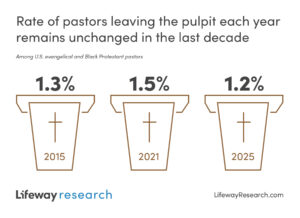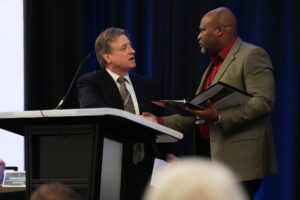WASHINGTON (BP and local reports) – Just a month before the U.S. Supreme Court will hear a landmark abortion regulation appeal from Mississippi, justices questioned multiple lawyers for a total of nearly three hours Nov. 1 on whether Texas’ ban on heartbeat abortions may continue to be enforced.
The justices heard oral arguments in lawsuits brought by abortion providers and the administration of Democrat U.S. President Biden that seek to block enforcement of the Texas Heartbeat Act (S.B. 8), which prohibits the abortion of an unborn child whose heartbeat can be detected.
At this stage, the high court is not considering the constitutionality of the Texas law but whether an injunction should be issued against enforcement of the law until the case is fully adjudicated and whether the U.S. government may challenge it in federal court. At present, the law is being enforced across Texas.
The Supreme Court has agreed to rule in its current term on another state law that prohibits early abortions and provides the justices with the opportunity to reconsider and even reverse the right to abortion established in the court’s 1973 Roe v. Wade opinion.
The justices will hear oral arguments Dec. 1 in Dobbs v. Jackson Women’s Health Organization, a Mississippi case involving the constitutionality of a Mississippi law that prohibits the abortion of an unborn child whose gestational age is more than 15 weeks.
U.S. District Judge Carlton Reeves in Jackson ruled the Mississippi law unconstitutional, a decision upheld by the U.S. Court of Appeals for the Fifth Circuit in New Orleans.
The Mississippi Baptist Christian Action Commission has expressed support for the Mississippi law, while the Southern Baptist Ethics & Religious Liberty Commission (ERLC), other pro-life organizations, and the State of Mississippi have filed briefs in support of the 15-week ban that urged the high court to reverse the Roe ruling and the 1992 Planned Parenthood v. Casey decision, which affirmed Roe but permitted some state regulation of the procedure.
During oral arguments in the Texas case, titled Whole Woman’s Health v. Jackson, Marc Hearron, senior counsel with the pro-abortion Center for Reproductive Rights in New York City, told the justices the Texas legislature “not only deliberately prohibited the exercise of a constitutional right recognized by this court, it did everything it could to evade effective judicial protection of that right in federal or state court” in approving the ban.
“S.B. 8 is an abortion prohibition, but the issues before this court are far more sweeping,” Hearron said. “To allow Texas’ scheme to stand would provide a roadmap for other states to abrogate any decision of this court with which they disagree. At issue here is nothing less than the supremacy of federal law.”
Judd Stone, solicitor general for the State of Texas, told the high court none of those sued by the abortion providers are “appropriate defendants.” Among those sued were a state judge and a county court clerk.
The abortion providers bringing suit cannot gain an injunction until justices hear the full case “because federal courts don’t issue injunctions against laws… but against officials enforcing laws. No Texas executive official enforces S.B. 8 either, and so no Texas executive official may be enjoined,” he said.
In arguments in a related case aimed at the Texas law and recently heard by the Supreme Court, titled United States v. Texas, Elizabeth Prelogar, the newly-confirmed U.S. solicitor general, said the state intended for the ban “to thwart the supremacy of federal law in open defiance of our constitutional structure.”
“The United States has a manifest sovereign interest in suing to redress this violation,” she told the justices. “[The Texas law is] an attack on the authority of this court to say what the law is and to have that judgment respected across the 50 states.”
Stone retorted, “The United States cannot seriously assert that the Constitution requires pre-enforcement federal judicial review,” he said. “It opposes that result in virtually every other case.”











